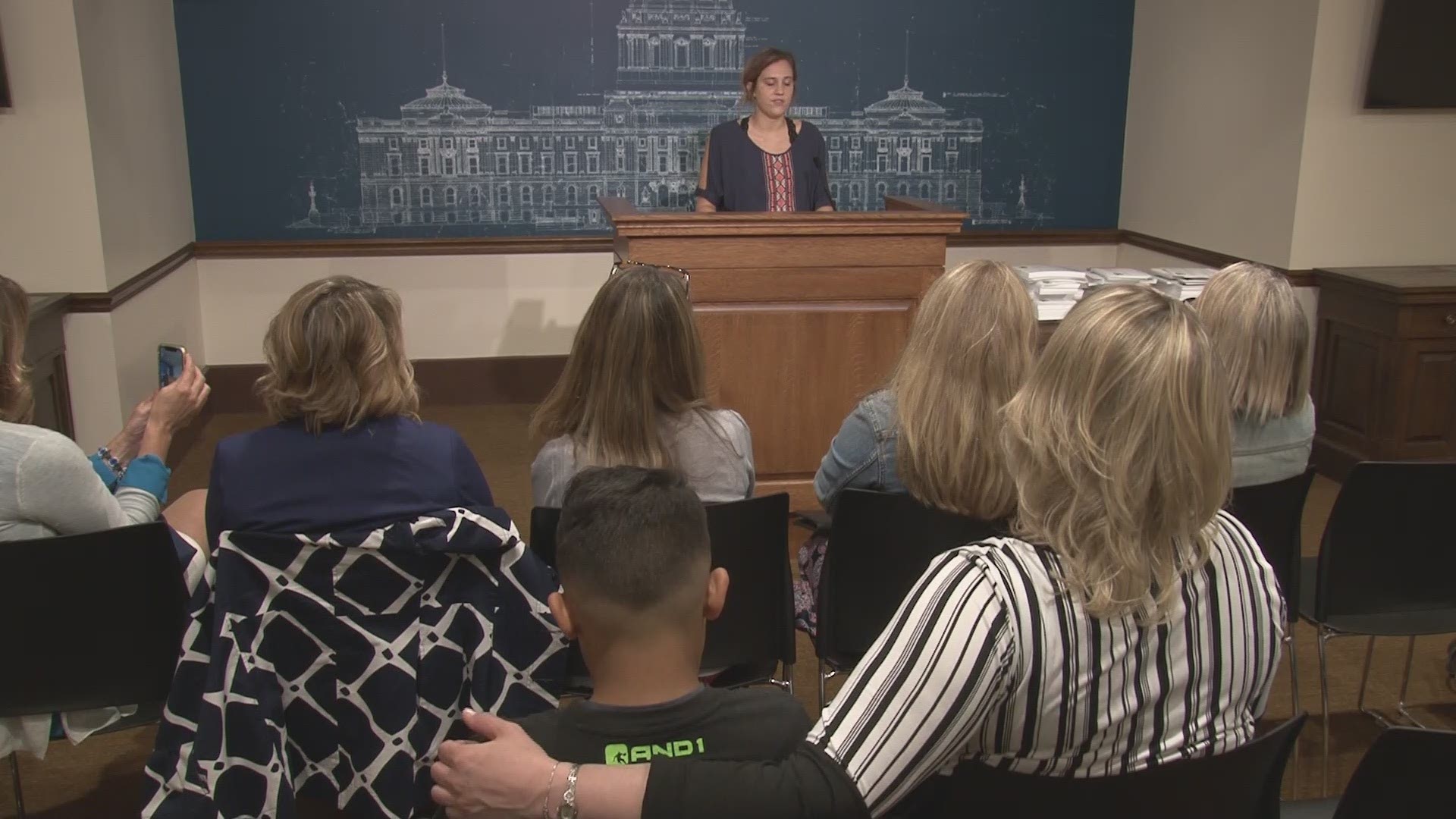ST PAUL, Minn. — Amanda Conlin has been there. Struggling to explain why she couldn't see words the way her classmates did and spending summers in hot school buildings trying to play catch up with her peers.
"These kids are brilliant. They have something to say. They just need to learn in a different way," Conlin remarked at a State Capitol press conference.
"Labeling them as dumb, lazy, as if they don’t try enough, is not okay. I listen to third graders who don’t want to go to school, who are terrified to go to school, who are terrified to speak in front of their classrooms."
Conlin is part of a coalition of parents and educators known as Decoding Dyslexia Minnesota, which is working to help children get the help they need earlier in schools.
They're often not diagnosed with dyslexia at first, leading parents and teachers to look for other explanations for their trouble reading or cooperating with teachers. Once the problem is recognized it often falls on families to bear the expense of tutoring and other interventions.
The Education Finance omnibus bill contains three provisions aimed at addressing the problem, including early screening and equipping teachers with the expertise they need to recognize the characteristics of dyslexia.
"When a student is identified with dyslexia, it is often a parent who knows that their struggling child is not lazy, a parent who knows that the test scores do not adequately reflect their child’s ability and a parent who’s willing to make the significant financial investment to have their child screened by a private professional," said Rachel Depa, a Delano School Board member and a mother of two children with dyslexia.
The bill includes three main provisions aimed at getting help to children and families sooner, including:
• Students identified as not reading at grade level at the end of K, 1st or 2nd grade, and in 3 grade and higher must be screened for characteristics of dyslexia (House omnibus bill)
• Tier 3 and 4 teachers in early childhood through 8th grade who are renewing their teacher's license must receive training on understanding and recognizing characteristics of dyslexia (Senate omnibus bill)
• Teacher preparation programs must include instruction of dyslexia (Senate omnibus bill)
"That screening is important because we know a child that’s not reading at grade level by third grade is not going to read a grade level throughout the rest of their school career, they’re going to continue to need interventions," Depa added.
Michele Kvikstad, a special education supervisor and parent of a child with dyslexia said teachers have asked for help identifying that reading issue.
"Countless research has proven that dyslexia is not about capacity. It’s about instruction," Kvikstad explained.
"It is our obligation to provide teachers the tools and education they need to do their jobs."
The group thanked Rep. Jim Davnie and Sen. Carla Nelson for adding the language to their omnibus bill, which is still being reshaped in a conference committee. They also thanked Senators Roger Chamberlain and Greg Clausen and Representatives Heather Edelson, Mary Kunesh-Podein and Brian Daniels for their support.

